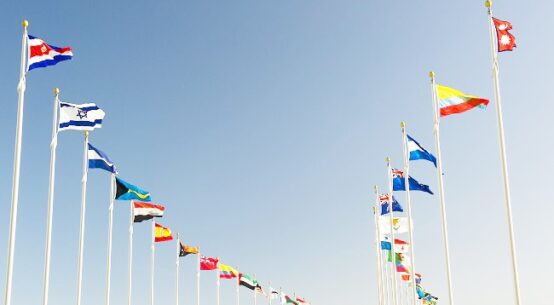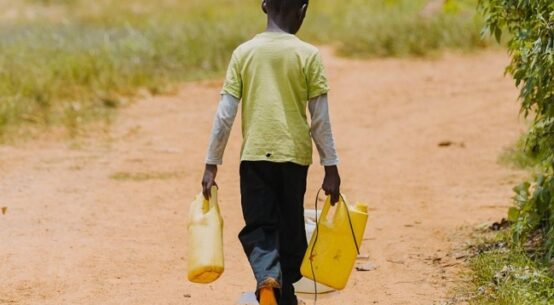Many in the wealthy West have misrepresented the causes of global warming, offering false solutions while claiming the high moral ground. This distracts attention from how they became wealthy while emitting greenhouse gases.
Tragedy or farce?
Growing greenhouse gas (GHG) emissions in the industrial age have caused global warming, with their accumulation continuing to accelerate despite being close to exceeding 1.5°C warming and its associated tipping points.
This is sometimes depicted as due to the failure to sustainably manage the atmosphere as a shared resource. The ‘tragedy of the commons’ refers to a community’s inability to manage a common resource sustainably.
One popular example is of individual herders benefiting by grazing more of their own animals on a limited piece of commonly shared land. Such selfish behaviour will eventually exhaust the grazing pasture, the shared common resource.
To address ‘tragedy of the commons’ claims, mainstream economists have advocated assigning property rights to more directly experience the negative ‘externalities’ or consequences due to excessive use of the limited resources owned.
Developed countries have long exhausted their ‘fair share’ of the world’s ‘carbon budget’. Climate scientists identified 350 parts per million (ppm) of carbon dioxide as the upper limit to stabilise the climate to prevent disastrous climate change.
Apportioning this carbon budget as quotas among the world’s countries has been described as allocating emission ‘rights’. The global North used up this quota in 1969, then overshot its 1.5ºC quota in 1986, and 2.0ºC quota in 1995!
Such quotas refer to the maximum accumulated carbon emissions, fairly shared among all countries, to ensure world temperatures do not rise over the pre-industrial age average by more than 1.5°C or 2.0°C in 2100 respectively.
Even if the global North achieves ‘net-zero’, their cumulative emissions alone would still be thrice their 1.5°C ‘fair share’. By contrast, at ‘net-zero’, the global South’s accumulated emissions would only use half its 1.5°C fair share.
Hence, the claim that developing countries lack ‘ambition’, compared to the global North, by not pursuing the same climate policies – such as carbon pricing – is misleading.
The European Union’s Carbon Border Adjustment Mechanism (CBAM) makes such claims. It is not only onerous but also profoundly biased. The EU has been the world’s second-largest GHG emitter historically, long exceeding its ‘fair share’ of using the atmosphere as a carbon sink.
European solution, others pay
Likely free riding poses a related problem. If GHG emissions are sufficiently penalised, global warming mitigation costs can be passed to individual greenhouse gas (GHG) emitters.
The European Union (EU) has the world’s oldest and largest Emissions Trading System (ETS). It functions by capping carbon emissions and auctioning GHG emission quotas to companies, who can trade such emission ‘rights’ among themselves.
The ETS claims to be raising costs or penalties for GHG emissions to reduce them by 55% by 2030. Thus penalising emissions especially threatens energy-intensive industries which emit more GHGs.
In response, some industries threatened to move abroad to less environmentally regulated countries. The EU gave free quota allocations to GHG emissions-intensive industries to gain political acceptance by cutting the costs of such transitions.
This is partly why the ETS can only claim credit for a mere 0% to 1.5% in annual GHG emissions reductions, failing spectacularly to reduce emissions rapidly.
Can carbon taxes save us?
To reduce GHG emissions by 55% by 2030, the EU’s new CBAM policy package promises to gradually phase out free ETS allocations.
To protect the profits of the EU’s GHG-emitting industries, importers will be required to pay higher prices. These are supposed to incorporate carbon taxes, to deter high GHG-emitting imports, especially from developing nations.
Developing countries’ exporters are required to pay carbon prices on their exports at rates determined by importing countries. Such measures are said to be fair, ostensibly by ‘levelling the playing field’, but will actually mainly burden developing country exporters.
An UNCTAD study shows how CBAM discriminates against low- and middle-income countries. It found CBAM will only reduce worldwide carbon emissions by 0.1%!
The CBAM will thus get developing countries to pay EU members for their GHG-emitting exports. Such ‘carbon taxes’ may even be used to help finance the EU’s own green transition or for purposes unrelated to climate.
Ostensibly to address global warming, the new rules are very protectionist. The WTO dispute settlement tribunal may not approve them if it is allowed to function after years of being blocked by the US. But the outcome is uncertain as this would be the first time a climate measure would be so tested.
Freeriding?
Historically, rich nations have emitted much more GHGs. On a per capita basis, this is still the case today. Despite such huge differences in GHG emissions, and ignoring developing countries’ limited means, rich nations want to impose the same rules and requirements on them.
As Elinor Ostrom has shown, communities worldwide have avoided the ‘tragedy of the commons’ historically. They governed shared resources to meet current needs while sustaining them for future generations.
Many communities devised arrangements to prevent the exhaustion of common or shared resources. But many of these were subverted by colonialism to favour foreign powers at the expense of those ruled.
CBAM also contradicts the UN Framework Convention on Climate Change (UNFCCC) principle of ‘common but differentiated responsibilities’ (CBDR). CBDR refers to the different responsibilities of developed and developing countries for causing the climate crisis and addressing it.
Recognising CBDR, the UNFCCC’s Kyoto Protocol put the primary burden for mitigation on developed countries. Rich nations rejected and undermined CBDR, delaying climate action by decades. Most Western nations made little effort to meet their obligations while accusing others of freeriding on them.
Of course, this ignores rich nations effectively freeriding on developing countries for centuries through colonialism, domination and exploitation. And the urgent action now needed to address the climate crisis has become the new pretext for rich nations to insist everyone must sacrifice equally.
Self-serving solutions
Most developing countries urgently seek – but cannot get – affordable climate financing. They prioritise climate adaptation, rather than mitigation which is what most of the limited climate finance resources from the global North is earmarked for.
To be sure, claims of ‘carbon leakage’ have been very moot. The transition anxieties of high-emission industries are best addressed by targeted policies to rapidly decarbonise these industrial processes.
Rich country subsidies have bypassed the distributional equity and political problems posed by carbon pricing or taxation. For instance, Biden’s Inflation Reduction Act (IRA) subsidies promote renewable energy and electric vehicles by lowering their costs to consumers.
Surely, by now, the world has learnt how to better cooperate to save ourselves.
Jomo Kwame Sundaram is a prominent Malaysian economist. He is senior adviser at the Khazanah Research Institute, visiting fellow at the Initiative for Policy Dialogue, Columbia University, and adjunct professor at the International Islamic University.
YIN Shao Loong is Deputy Director of Research at the Khazanah Research Institute where he focuses on climate change and industrial policy.


